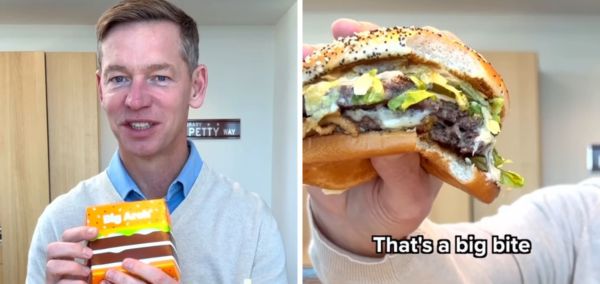
Mythbusting the vape ban: What does it mean for students in Edinburgh?
No, you won’t be arrested for possession x
The much discussed vape ban has began, starting June 1st, and with it single-use disposable vapes will be banned from sale in the UK.
The ban comes after concerns were raised by health experts, parents and teachers about the prevailing use of vapes by young people, with the BBC reporting that a quarter of 11 to 15 year olds had tried it, despite it being illegal for them to buy vapes.
Environmental reasons were also cited, with the disposable nature of the vapes leading to five million vapes being discarded each week, causing huge amounts of waste and litter of discarded plastic and toxins.
As with any major change, there is confusion, uncertainty and misinformation flying around the ban, as its enactment date approaches fast, here’s everything you need to know.
1. Myth: It will be illegal to own a vape
No, you won’t be fined or arrested for taking a puff on your walk to uni, but the nature of disposable vapes means that if you are an avid user, your stock will likely run out soon.
The ban does not intend to ban vapes, nicotine, or stop everyone from partaking, but instead it wants to remove some of the characteristics that make them so prevalent and accessible to young people and reduce the burden they place on the environment.
Refillable and rechargeable vapes will still be available, but these will be more expensive (in the short run), chunkier, heavier, and won’t be available in all the flavours you may be used to.
2. Truth: You won’t be able to buy vapes in-store or online
The ban will make it illegal for businesses to sell or supply single-use vapes, applying to both online stores like Amazon and TikTok shop where single-use vape purchases have been growing in popularity due to the ability to bulk buy, as well as brick and mortar stores on the high street including off-licenses.
Stores will have to arrange to recycle their leftover stock, with sales being banned entirely from June 1st, but reusable vapes will still be available. The ban also applies to all disposable vapes, even if they do not contain nicotine.
The ban applies across the supply chain, with retailers being the most obvious to us, but it will also be illegal for manufacturers, wholesalers, importers and healthcare services (like stop smoking services) to sell or supply vapes.
3. Myth: Vaping is harmless, so the ban is pointless
Despite vapes originally being invented as a healthier form of smoking, initially intended to help wain people off cigarettes, that does not mean that they are harmless.
While the short and long term effects of vaping need to be studied further, the NHS already warns that many vapes contain harmful chemicals and particles that can increase users chances of developing cancer when inhaled deep into their lungs.
It also warns that that the prevelance of nicotine in the majority of vapes and e-cigarettes poses similar problems as cigarettes in terms of the addictive nature of the substance, with particularly acute impacts on young people and pregnant women.
Nicotine can harm brain development, impacting parts of the brain that control attention spans, learning development, mood swings and impulse control, as well as potentially increasing the risk of future addictive habits.
4. Truth: The ban doesn’t restrict vape flavours (but it may in the future)
The incoming vape ban does not restrict vape flavours, however, there is an ongoing debate over future legislation that could restrict vape flavours.
On one side, vape flavours are cited as a marketting tool to get younger people hooked on vapes, with fruity flavours akin to what you’d find in sweets. The design of vapes is also a concern due to their often bright colours and memorable names increasing their appeal to young people.
Previous calls from politicians have promoted the idea of a restriction to a set of standard flavours: Tobacco, mint, menthol and fruit.
On the other, organisations like HAYPP and the UK Vaping Industry Association (UKVIA) argue that removing flavoured vapes could push people back to smoking conventional cigarettes, with UKVIA claiming that one in three vapers believe that a restriction or ban could put them back on cigarettes.
6. Myth: It is just the UK that’s banning vapes
It’s not! New Zealand, France and various US states have all passed similar laws targeting disposable vapes and their flavours, Australia has even committed to a nationwide ban on vape sales, moving to a prescription-only model via pharmacies.
Featured image via Flickr.






















